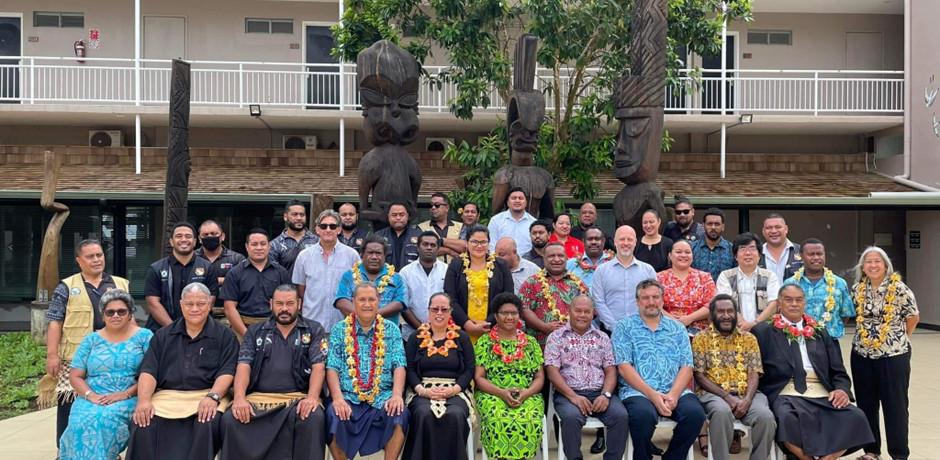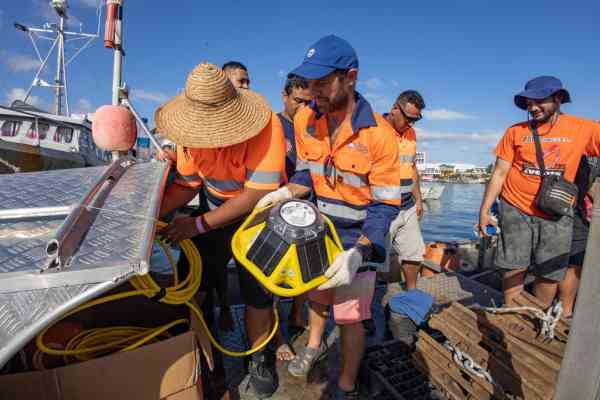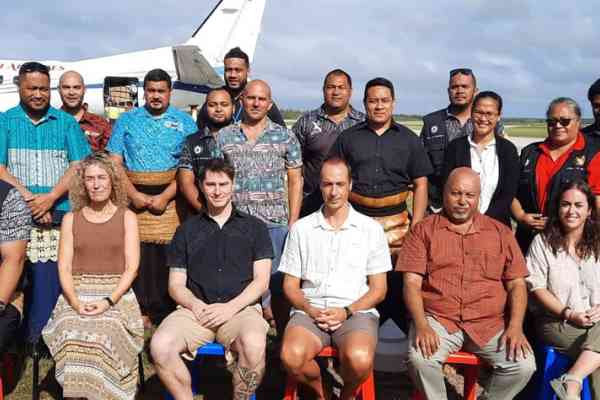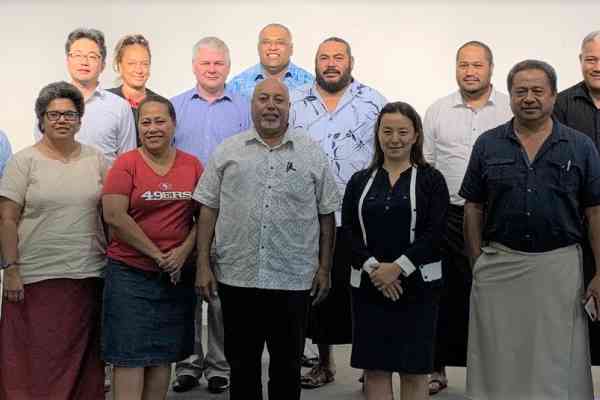The 7th Annual Meeting of Oceania Regional Seismic Network (ORSNET) meet this week in Nuku’alofa, Tonga, to discuss the regional seismic network and how it can be further strengthened to improve early warning and preparedness. The Pacific Island countries who participated in the meeting include Fiji, French Polynesia, New Caledonia, Papua New Guinea, Samoa, Solomon Islands, Tonga and Vanuatu including representatives from UNESCO and the Pacific Community. The meeting of the Pacific Tsunami Warning and Mitigation System (PTWS) Working Group 2 Task Team on Seismic Data Sharing in the Southwest Pacific is also being held this week in Tonga.
The Pacific Island countries are vulnerable to the impacts of earthquake related hazards with active volcanoes within their territories or in proximity that too often result in significant socio-economic impacts including loss of human life. Approximately 30% of global seismicity is observed and 15% of deadly tsunami’s are generated in the South-West Pacific region. The Hunga-Tonga Hunga-Ha’apai (HTHH) volcanic eruption, January 2022, is a reminder of how devastating the impacts can be, not only for Tonga, but to the Pacific Island countries and globally where the impacts were also experienced.
In opening the meeting, the Chief Executive Officer for Ministry of Lands and Natural Resources, Ms. Rosamond Bing, stated “The meeting this week provides and opportunity for us to engage with our partners and share experiences to ensure we are better prepared prior to and during disaster events. It’s important that our multi-hazard early warning systems work and lets work together to address our challenges. Most importantly to ensure the people receive the warnings and know what to do” Rosamond also stressed the importance of being resilient and shared her experience during Hunga Tonga Hunga Haapai eruption.
The Chair for ORSNET Secretariat, Ms Esline Garaebiti, also made reference to the importance of improving preparedness and the need to strengthen our seismic monitoring and detection capability. It’s critical that we build on our national operational capacity through exchange of data, share resources such human, finance and equipment, and exchange our expertise as a region. The covid period presented some challenges that we have overcome by maintaining our network through virtual communication and it’s great that we are able to meet in-person at this meeting after 3 years. Our seismic stations and early warning systems must always be operational so that our communities and people receive the warnings as quickly as possible to better prepare themselves”.
There will also be a learning event post HTHH eruption and how we could improve our early waring and preparedness. The PTWS Working Group 2 Task Team meeting will focus on seismic data sharing as this is also important for issuing early warning and back-up gaps in the regional seismic area we manage especially if seismic stations in some countries are not working.
The meeting is hosted by the Government of Tonga and include key agencies involved in ORSNET. It is an opportunity to collaborate and better work together with key agencies and partners. The expected outcome is to strengthen ORSNET’s seismic monitoring and detection capability and develop a roadmap with practical measures to address key challenges including exploring opportunities for greater visibility. UNESCO and the SPC implemented Pacific Resilience Project (PREP), funded by the World Bank, supported the ORSNET Secretariat organize the meeting.
For more information, please contact SPC's PREP Project Manager, George Beck, [email protected]



